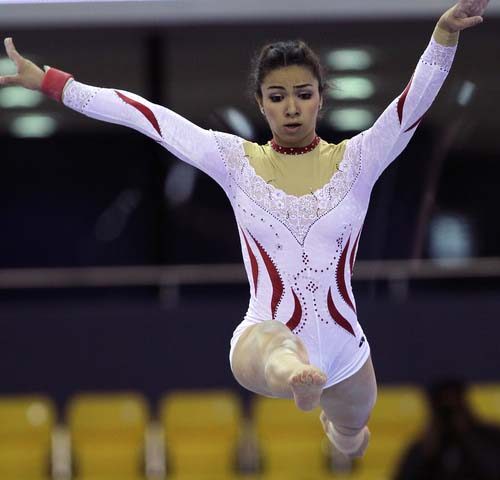
By Mai Akkad
For many people trying to stay in shape, Ramadan is a demotivating time with little opportunity to exercise, due to dehydration concerns during the day and the distraction of lavish meals at night.
But others, including many of Qatar’s pro athletes, have no choice but to find a way to balance their activity and diet. Here’s how some them stay on track:
Nada Arakji, an 18-year-old Olympic swimmer and Carnegie Mellon University in Qatar student, said she trains for two hours at night after breaking her fast.
“Having iftar is like having breakfast, so I make sure not to eat a lot before my training starts.
It’s mostly the same balanced diet which is important for me to maintain: a good amount of protein, a small amount of carbs, a good amount of fruit and vegetables and barely any fat or sweets – I try to avoid sweets the most! The most important thing for me is to eat in small portions before training.”
This strategy jives with the advice that health officials at orthopedic hospital Aspetar have been giving this month – that food intake plays a key role in one’s health success during Ramadan.
Among the suggestions made in a recently released guide: replace meat with fish, consume fewer processed foods, limit salt intake and eat more fruits, vegetables and unsalted nuts and beans.
Timing
For 17-year-old Qatari gymnast Shaden Wahdan, who claimed two gold medals in the 2011 Arab Games, training in Ramadan is admittedly more difficult than in other months.
“The first couple of days are usually a bit hard but as the days pass I learn to cope with the different timings in order to maintain my level and prevent it from dropping.
My coach tries to maintain an enjoyable atmosphere during training to motivate us and as team mates we encourage each other.”
Wahdan added that she trains for three hours after sunset.
“I try to not overeat during iftaar because I wouldn’t want to feel bloated during training. I would usually eat a couple of dates before I start training to provide me with energy,” she said.
Aspetar again affirms this plan, urging people to break their fast with with only a small amount of food, including dates and/or soup, so that the body has time to adjust.

Doctors also stress the importance of staying hydrated, advocating carrying around a water bottle while out and about in the evening.
Finally, the experts advise working out two to three hours after iftaar, once a person has been refueled and reenergized.
Outdoor activity
That’s one reason why Abdulrahman Al Bishi, a 25-year-old Qatari who plays for the national golf team, waits until 9pm to start his routine.
Al Bishi also said he has switched his days and nights this Ramadan to avoid practicing in the searing Doha sun. Even though his sessions are shorter and less intense than in other months, they play a crucial role in maintaining his skill level, he said.
For those spending time outdoors, even evening temperatures in Doha summer can be hot – up to 33C (91F), or higher, factoring in the humidity rate.
This season, Hamad Medical Corp. has advised anyone exercising outside to start slow and be wary of symptoms such as exhaustion, headache, dizziness or nausea.
HMC staffers also advocate a buddy system, so that if someone faints or has convulsions after working out in the heat, his/her exercise partner can take him to the emergency room.
Exercising while fasting?
Not everyone has time to exercise at night. According to Craig Bunting, a personal trainer in Doha, it is possible for the average person to fast and exercise simultaneously.

Speaking to Doha News, he said the intensity of your workout plays a role:
“If you’re an elite athlete competing at the top of your sport, then it can be a challenge because you’re competing at a very high level. The intensity will be greater, and therefore the energy output, and associated factors such as dehydration will also be increased.
For the average person, exercise sessions won’t come anywhere near those levels of intensity, so it won’t matter that much.“
Are you staying active this Ramadan? What are your strategies?
Credit: Photos by Doha Stadium Plus; Liz West; and Satheesh, Bejna and Aman







